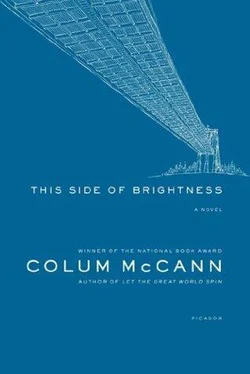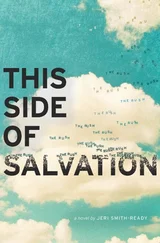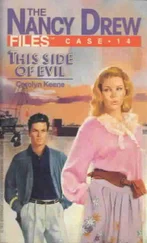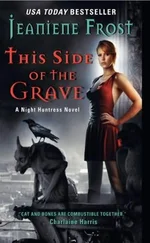He reaches for the line of ties strung to the ceiling, tugs it down, thinks briefly about putting one across his forehead, but there is not time to undo the knots, and he just balls the line up and flings it and watches it spin and unravel out, all its colors, until it hits the ground and bunches up. He takes his harmonica and it too is gone, sailing along, maybe some whistle of wind within the reeds before it smashes to the tunnel floor. Over the side of his nest he dumps the contents of the piss bottles in a long yellow arc. The empty bottles follow the stream. He lifts his mattress and tilts it in the air and flicks his lighter and sees the wiggle of maggots in the damp side of the bedding, but he continues searching underneath for change and tobacco, finds a few half-smoked butts and a small bottle of unopened gin. He grins and pours the gin out on the floor. Then he lashes out at the sleeping ghosts of himself and Angela, overturns the mattress once more, and drops it down from his nest.
It lands with a sad thud.
One sweep of his hand into the Gulag to make sure there is nothing left. Then the hubcaps spin away from his fingers and glide across the tunnel and make a strange high sound when they hit the wall. He kicks a rock into the fire pit and he feels alive and powerful and a million movements are within him and he steps with calculation through the nest, getting rid of everything, even some of his hair and beard that lies on the floor. When he throws it down, it makes great feathery motions on the air.
Clarence Nathan moves into the rear cave, careful not to disturb the mound where Castor lies. He moves to the shelf and pulls it down in one smooth motion.
The books are first to go; he shuffles in and out of the rear cave and throws them down from the front of his nest, most of them landing spine open on the tracks. Dean will probably come and collect them. He stares down at his maps among the frozen mud. Dozens of them. He is well aware of how they will burn and what that will mean. A dozen Ziploc bags flutter to the ground, and he is out by the fire pit and seaching for his Zippo. He crumples the maps together and — by the light of God’s journey and the faces of his own — he looks around at the nest and chuckles and there is no grief in it, the maps coming down to ash, the contours consumed. The smoke drifts across the tunnel and away to the topside world: four years of maps in a single burning. He goes over to his pile of clothes and stuffs a plastic bag with the only things he might need — nothing except a couple of shirts and some pants and one pair of sneakers — and the plastic bag goes tumbling and lands near the tracks and he will pick it up later and the bag will be heavy enough to just throw away.
To desire is to not have, he thinks, remembering Lenora and the way he touched her, but there is not this hollowness anymore; he has stayed alive for the calm of this moment.
He should remain awhile and savor the empty nest, but he doesn’t. He is out on the catwalk, and a small tremble runs through his calves. His elbows are held in at his sides. The twenty-foot drop beneath him is a vast chasm of blackness. The catwalk is still a little icy. A burning half cigarette is perched in the side of his mouth. He closes his eyes, smiles, and manages to turn himself a half circle on the catwalk, moving in tiny, gradual increments, clicking his tongue as he goes. The cigarette bobs up and down in his lips. His boots crunch the ice. He knows that to be blind means that everything is abrupt, that nothing announces its approach except memory. All true light recedes with the memory of light.
Halfway there, his face set in a peculiar grin, up on one leg, one arm out, then the other out, switching legs, tucking his head down to his shoulder, crane-dancing in the country below.
He sways a little, hops, and turns around, his arms out wide for balance. The idea of himself without his hair and beard is fantastic to him now, and he tells himself that if he had a mirror, which he doesn’t, it is the one time he might dare to look at his shut eyes. He chuckles at the absurdity, turns on the catwalk, completes the full circle. He knows now that he will try to go see her, that he probably never will, but — when he does — he will ask for nothing but will tell her he hadn’t meant what he did, he had been searching for ancestry, the gift of blood, and he will tell her that, when she was younger, he had been lifting his grandfather up, he had been lifting the shoulders of Nathan Walker up from her body.
I was lifting the shoulders of Nathan Walker out from you.
But for now he stretches both arms wide and he puts one leg out in front of him and he tucks his head into his armpit and lifts it again and, changing the structure of his body, Clarence Nathan smiles at his own ridiculousness — one, two, three, strike, return — and he says once again as he stretches his arms wide, he says, “Our resurrections aren’t what they used to be.”
But he turns and he hops and he knows it might be untrue, and, landing on the ground, in the tunnel, amid the detritus of his life, knees bowed, heart thumping, he lets a word rest upon his tongue, just once, it rests there, a thing of imbalance. He moves on out through the light shafts and into the darkness, into the light shafts again, along past the cubicles, stopping for a moment to listen to the sound of Angela’s breathing. He blows her a kiss and goes on, past the dead tree, beyond the murals, a great lightness to his body, not a single shadow cast in the tunnel. And at the gate he smiles, hefting the weight of the word upon his tongue, all its possibility, all its beauty, all its hope, a single word: resurrection.
Some of the incidents in this book are based on historical events — in particular the river blowout — but they have been adapted to suit the purposes of fiction.
I would like to thank sincerely the New York Transit Museum in Brooklyn, for allowing me access to their archives; the Schomburg Library in Harlem; the New York Public Library; and the American-Irish Historical Society. I would like to thank the many sandhogs who gave me access to their hearts and memories. Thanks to the men and women of Harlem who gave me their time and remembered with such honesty. A very special thanks to Sean and Sally McCann, Roger and RoseMarie Hawke, Captain Bryan Henry, Barbara Warner, Ledig House, Terry Williams, Jean Stein, Christy Cahill, Darrin Lunde, Rick Ehrstin, David Bowman, Billy “The Mule” Adare, Shaun Holyfield, Shana Compton, Leslie Potter, and Ronan McCann, many of whom read the manuscript in its early stages and provided invaluable advice. Also to Arthur French, who graciously helped me with many sections of dialogue. My sincere gratitude to all and sundry at Metropolitan Books and Henry Holt and at Phoenix House. I’m blessed with two very fine editors, Riva Hocherman and Maggie McKernan.
Of course, this book would never have been written without the love, advice, and support of my wife, Allison. To her, all thanks. And for Isabella too.
Finally, my thanks to the men and women of the tunnels of New York who allowed me into their lives and their homes, most especially Bernard and Marco. Neither of them are in this book, but it would have been impossible to write without them.












